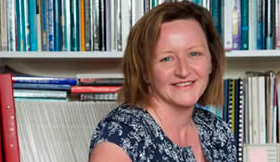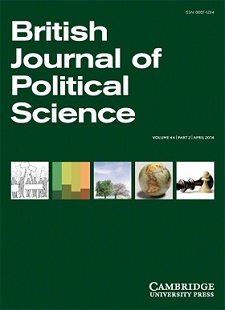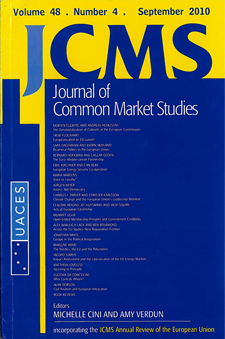Unquestionably knowledgeable in their realms, Russian scholars lag behind in competencies to have their papers published in English-language journals. Trying to make things better, RIAC asked the editors of leading British journals to share their in-house secrets with young authors. We express our thanks to Sean Griffin of Johns Hopkins School of Advanced International Studies for assistance in preparation of this material.
Unquestionably knowledgeable in their realms, Russian scholars lag behind in competencies to have their papers published in English-language journals. Trying to make things better, RIAC asked the editors of leading British journals to share their in-house secrets with young authors.
We express our thanks to Sean Griffin of Johns Hopkins School of Advanced International Studies for assistance in preparation of this material.
What is the process for an author to submit and publish an article in your journal?
Rene Bailey, Managing Editor, Political Studies: Political Studies is a general journal that is interested in publishing articles on all subjects. Our main criteria for considering articles are: (1) quality of research and analysis / academic rigour, (2) originality, (3) generalisability, (4) quality of English usage, (5) appropriate length (around 9,000 words including references). All submissions should be made via this online editorial site: http://mc.manuscriptcentral.com/post. Authors should first create a user account and then follow the self-explanatory steps for making their submission.
Hugh Ward, Lead Editor, British Journal of Political Science: Papers are submitted online from the links from the journal website.
Michelle Cini, Editor, Journal of Common Market Studies: The process is explained on the JCMS website. It involves registering with our online system (Scholar One/Manuscript Central) and following the online instruction regarding submission.
How are articles selected for publication? What is the review process for submitted articles (editorial board, peer review)? How long does it typically take to complete the review process?
R.B.: The editors can only decide whether a manuscript is suitable for the journal once it has been formally submitted. At the initial stage they will assess whether it appears to meet the above criteria, in which case it will then be sent out for peer review. Reviewers are selected on the basis of their proven expertise in the field, and it is not always a speedy process to allocate sufficient reviewers to read a manuscript. We always aim to have 3 reviewers comment on each manuscript, and the whole process from date of submission to receiving the 3 reports can take up to 3 months. Once reports have been received these will be read and assessed by two or more members of the editorial team, and a decision will then be taken, principally guided by the comments of the reviewers, but other considerations can also be factored in.
H.W.: Around 40% of papers are deemed unsuitable and not sent for review. Papers sent for review normally go to three reviewers. Editorial decisions are made on the basis of reviews and the responsible editor’s reading of the paper. Typically papers not rejected at this stage go through at least one round of revisions before final acceptance. We aim to make a first decision within 2 months of submission, and papers rejected without sending for review will typically receive a decision within a week.
M.C.: If articles pass an initial check by the editors, the editors look for peer reviewers (normally 3 of them, but sometimes 2). We aim to get a first response within about 60 days, but if reviewers are slow or if we have difficulties finding reviewers it can take longer, but we try not to go beyond 90 days.
Are there any formal restrictions on who can publish in your journal (position, education, etc.)?
R.B.: Our emphasis in assessing manuscripts is on the quality and originality of the research, not the age, affiliation or educational background of the submitting author.
H.W.: None.
M.C.: No.
What are the characteristics of an ideal article?
R.B.: Beyond meeting the general technical criteria outlined above, an ideal article is written in a style that is accessible to anyone and easily conveys its meaning, avoiding jargon or convoluted phrasing. It should have a punch from the very beginning that says at once what is new about the research being presented and why it is of interest to all readers, not just those with an expertise in the field.
H.W.: Originality; relevance; clarity; appropriate research design and methods in empirical articles.
M.C.: It should make a contribution to the academic literature, be theoretically informed and analytical.
What is the rejection rate of your journal? What are the main reasons for the rejection of a manuscript?
R.B.: We reject around 80% of submissions to the journal. The main reasons for rejection are lack of originality, sloppy scholarship, and/or unconvincing results.
H.W.: We accept around 14% of submitted papers.
M.C.: We reject around 80% of submissions.
What recommendations do you have for young scholars looking to publish their first article in a scholarly journal?
R.B.: Young scholars looking to publish their first article in a scholarly journal should a) ensure that they understand the submission criteria and meet them exactly; b) read several articles from that journal to familiarise themselves with the style and standard of presenting their research; and c) consider submitting first to a journal that is not one of the most prestigious so that they have a greater likelihood of success and can experience and benefit from the peer review process and the feedback provided.
H.W.: Get plenty of advice from experienced colleagues and from audiences at conferences before submission. Look at what the journal publishes and judge whether it is likely to be interested in what you are doing.
M.C.: Make sure that your article has been read and commented on many times before you think about submitting to a journal, and that you have responded to the criticism you receive.
What recommendations do you have for foreign scholars looking to publish in British journals?
R.B.: Our recommendations for foreign scholars looking to publish in British journals are no different to the above, apart from of course ensuring a high standard of English in the article. If the English is poor then the editors will not receive a very good impression when the article is first submitted and they will be reluctant to request from reviewers that they give up their time to read and comment on it. It is unlikely that articles with a poor standard of English will be sent out for review.
H.W.: British journals are typically international in orientation. They expect authors submitting papers to be aware of international developments in the sub-field of political science concerned. This can be difficult for scholars in countries like Russia; but it is essential if the author is to get an acceptance.
M.C.: For non-native speakers it is sensible to get the paper checked over by a native speaker. We cannot publish articles in poor English, and we do not have in house language editing services. Otherwise the advice is the same for all scholars.







